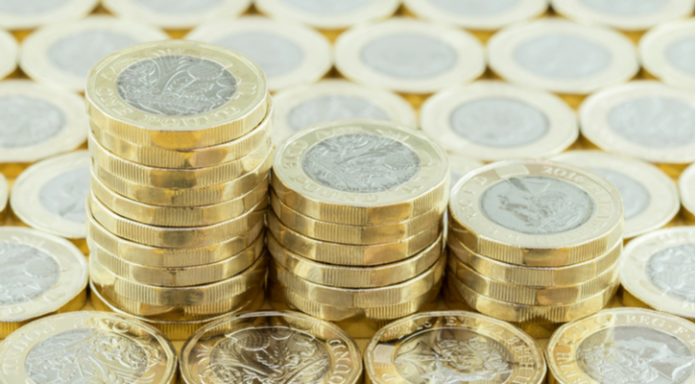The pound dropped sharply versus the euro at the start of trading for the new week and remained at that that level for the rest of the session. The pound euro exchange rate hit a nadir of €1.1331, its lowest level in over 10 days.
| What do these figures mean? |
|---|
|
When measuring the value of a pair of currencies, one set equals 1 unit and the other shows the current equivalent. As the market moves, the amount will vary from minute to minute. For example, it could be written: 1 GBP = 1.13990 EUR Here, £1 is equivalent to approximately €1.14. This specifically measures the pound’s worth against the euro. If the euro amount increases in this pairing, it’s positive for the pound. Or, if you were looking at it the other way around: 1 EUR = 0.87271 GBP In this example, €1 is equivalent to approximately £0.87. This measures the euro’s worth versus the British pound. If the sterling number gets larger, it’s good news for the euro. |
Pound investors were showing signs of nerves as Brussels gave UK Prime Minister Theresa May 24 hours to muster up cabinet support for the Brexit deal. Brexit negotiations over the weekend went badly, in one of the biggest setbacks since talks began. The EU have decided to give the UK time to see what happens in Westminster after Theresa May attempted to disengage from talks. She needs to rally support quickly if hopes are to remain alive for an orderly, softer Brexit.
The Irish backstop continues to present a huge issue. The Irish DUP party which props up the government has threatened to bring down the Prime Minister unless she drops plans to keep the region in the EU’s single market putting a regulatory border between Northern Ireland and mainland Britain during the backstop period. Should there be signs of progress towards an orderly Brexit, the pound will rally. Otherwise the pound could continue to fall as the UK moves further away from a deal being achieved.
| Why is a “soft” Brexit better for sterling than a “hard” Brexit? |
|---|
| A soft Brexit implies anything less than UK’s complete withdrawal from the EU. For example, it could mean the UK retains some form of membership to the European Union single market in exchange for some free movement of people, i.e. immigration. This is considered more positive than a “hard” Brexit, which is a full severance from the EU. The reason “soft” is considered more pound-friendly is because the economic impact would be lower. If there is less negative impact on the economy, foreign investors will continue to invest in the UK. As investment requires local currency, this increased demand for the pound then boosts its value. |
Today also sees the release of UK unemployment figures and wage data. This is usually closely watched by pound investors. However, today analysts expect Brexit developments to take centre stage.
Eurozone Economic Sentiment In Focus
The euro traded higher across the board on Monday. German inflation data on Friday at 2.3% gave the single currency a boost. This was the strongest increase in inflation since 2011. A central bank will often look to raise interest rates when inflation is running high. Germany’s strong reading boosted optimism of a rate hike sooner rather than later in the eurozone.
| Why do raised interest rates boost a currency’s value? |
|---|
| Interest rates are key to understanding exchange rate movements. Those who have large sums of money to invest want the highest return on their investments. Higher interest rate environments tend to offer higher yields. So, if the interest rate or at least the interest rate expectation of a country is relatively higher compared to another, then it attracts more foreign capital investment. Large corporations and investors need local currency to invest. More local currency used then boosts the demand of that currency, pushing the value higher. |
Today Germany and the eurozone will remain in focus with the release of the ZEW economic sentiment index. Historically, weakening sentiment is followed by a economic slowdown, which is why investors watch the figures so closely. Following a slight rebound in sentiment over the last two months, investors will be keen to see if the pattern continues. Analysts are actually predicting a slight decline. Should this be the case the euro could find itself under pressure
This publication is provided for general information purposes only and is not intended to cover every aspect of the topics with which it deals. It is not intended to amount to advice on which you should rely. You must obtain professional or specialist advice before taking, or refraining from, any action on the basis of the content in this publication. The information in this publication does not constitute legal, tax or other professional advice from TransferWise Inc., Currency Live or its affiliates. Prior results do not guarantee a similar outcome. We make no representations, warranties or guarantees, whether express or implied, that the content in the publication is accurate, complete or up to date. Consult our risk warning page for more details.
This article was initially published on TransferWise.com from the same author. The content at Currency Live is the sole opinion of the authors and in no way reflects the views of TransferWise Inc.





